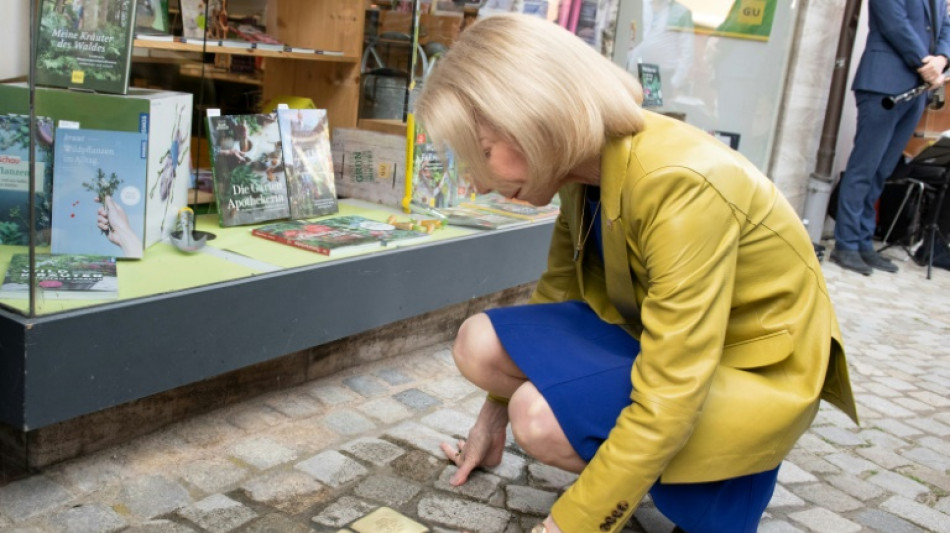
-
 Steelers receiver Metcalf strikes Lions fan
Steelers receiver Metcalf strikes Lions fan
-
Morocco coach 'taking no risks' with Hakimi fitness

-
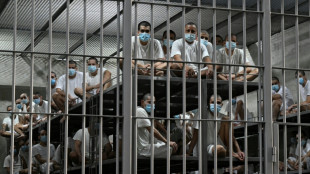 Gang members given hundreds-years-long sentences in El Salvador
Gang members given hundreds-years-long sentences in El Salvador
-
Chargers, Bills edge closer to playoff berths

-
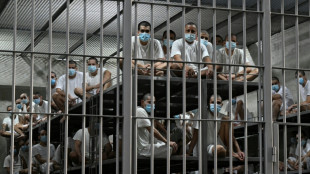 Gang members given hundred-years-long sentences in El Salvador
Gang members given hundred-years-long sentences in El Salvador
-
Hosts Morocco off to winning start at Africa Cup of Nations

-
 No jacket required for Emery as Villa dream of title glory
No jacket required for Emery as Villa dream of title glory
-
Amorim fears United captain Fernandes will be out 'a while'

-
 Nigerian government frees 130 kidnapped Catholic schoolchildren
Nigerian government frees 130 kidnapped Catholic schoolchildren
-
Captain Kane helps undermanned Bayern go nine clear in Bundesliga

-
 Captain Kane helps undermanned Bayern go nine clear
Captain Kane helps undermanned Bayern go nine clear
-
Rogers stars as Villa beat Man Utd to boost title bid

-
 Barca strengthen Liga lead at Villarreal, Atletico go third
Barca strengthen Liga lead at Villarreal, Atletico go third
-
Third 'Avatar' film soars to top in N. American box office debut

-
 Third day of Ukraine settlement talks to begin in Miami
Third day of Ukraine settlement talks to begin in Miami
-
Barcelona's Raphinha, Yamal strike in Villarreal win

-
 Macron, on UAE visit, announces new French aircraft carrier
Macron, on UAE visit, announces new French aircraft carrier
-
Barca's Raphinha, Yamal strike in Villarreal win

-
 Gunmen kill 9, wound 10 in South Africa bar attack
Gunmen kill 9, wound 10 in South Africa bar attack
-
Allegations of new cover-up over Epstein files

-
 Atletico go third with comfortable win at Girona
Atletico go third with comfortable win at Girona
-
Schwarz breaks World Cup duck with Alta Badia giant slalom victory

-
 Salah unaffected by Liverpool turmoil ahead of AFCON opener - Egypt coach
Salah unaffected by Liverpool turmoil ahead of AFCON opener - Egypt coach
-
Goggia eases her pain with World Cup super-G win as Vonn takes third

-
 Goggia wins World Cup super-G as Vonn takes third
Goggia wins World Cup super-G as Vonn takes third
-
Cambodia says Thai border clashes displace over half a million

-
 Kremlin denies three-way US-Ukraine-Russia talks in preparation
Kremlin denies three-way US-Ukraine-Russia talks in preparation
-
Williamson says 'series by series' call on New Zealand Test future

-
 Taiwan police rule out 'terrorism' in metro stabbing
Taiwan police rule out 'terrorism' in metro stabbing
-
Australia falls silent, lights candles for Bondi Beach shooting victims

-
 DR Congo's amputees bear scars of years of conflict
DR Congo's amputees bear scars of years of conflict
-
Venison butts beef off menus at UK venues
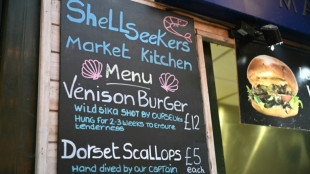
-
 Cummins, Lyon doubts for Melbourne after 'hugely satsfying' Ashes
Cummins, Lyon doubts for Melbourne after 'hugely satsfying' Ashes
-
'It sucks': Stokes vows England will bounce back after losing Ashes

-
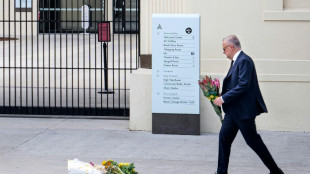 Australia probes security services after Bondi Beach attack
Australia probes security services after Bondi Beach attack
-
West Indies need 462 to win after Conway's historic century

-
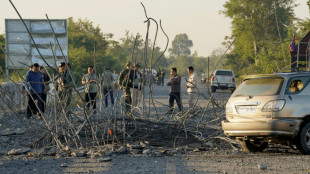 Thai border clashes displace over half a million in Cambodia
Thai border clashes displace over half a million in Cambodia
-
Australia beat England by 82 runs to win third Test and retain Ashes

-
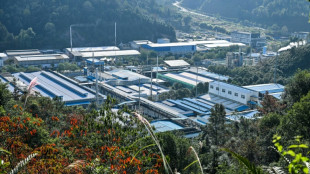 China's rare earths El Dorado gives strategic edge
China's rare earths El Dorado gives strategic edge
-
Japan footballer 'King Kazu' to play on at the age of 58

-
 New Zealand's Conway joins elite club with century, double ton in same Test
New Zealand's Conway joins elite club with century, double ton in same Test
-
Australian PM orders police, intelligence review after Bondi attack
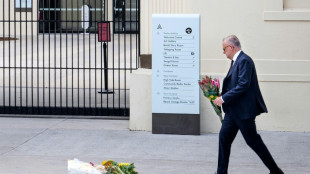
-
 Durant shines as Rockets avenge Nuggets loss
Durant shines as Rockets avenge Nuggets loss
-
Pressure on Morocco to deliver as Africa Cup of Nations kicks off
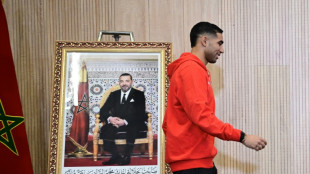
-
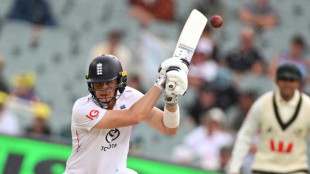 Australia remove Smith as England still need 126 to keep Ashes alive
Australia remove Smith as England still need 126 to keep Ashes alive
-
Myanmar mystics divine future after ill-augured election
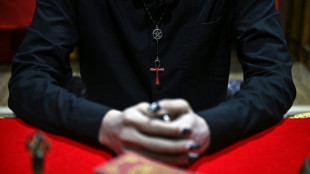
-
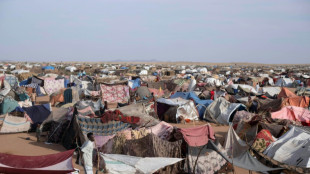 From the Andes to Darfur: Colombians lured to Sudan's killing fields
From the Andes to Darfur: Colombians lured to Sudan's killing fields
-
Eagles win division as Commanders clash descends into brawl

-
 US again seizes oil tanker off coast of Venezuela
US again seizes oil tanker off coast of Venezuela
-
New Zealand 35-0, lead by 190, after racing through West Indies tail


Giant Holocaust project marks 100,000-plaque milestone
The world's largest grassroots Holocaust memorial project has laid its 100,000th personalised plaque, as the US ambassador to Germany honoured her family members who fled the Nazis with an emotional ceremony.
When sculptor Gunter Demnig started the Stolpersteine, or "stumbling blocks", initiative three decades ago, he had little idea it would spread to more than 20 countries in Europe and crystallise many of the fraught contemporary questions around historical remembrance.
Each block, or Stolperstein, the size of a cobblestone, bears a stark engraving with the name of a victim, birthdate, date of deportation or escape and, if known, date and place of death.
The shiny brass of the plaques, embedded in the pavement in front of the victim's last home, catches the light, encouraging passers-by to stop and read the small inscriptions.
Last Friday, Demnig placed the 100,000th plaque in Nuremberg, the German city associated with the Nazis' giant torchlight parades and the 1935 race laws that stripped Jews of their rights.
On Tuesday, he joined US Ambassador Amy Gutmann in the picturesque southern city of Feuchtwangen to lay eight blocks for her German Jewish relatives.
"As the US ambassador, the daughter of Kurt Gutmann, a Jewish refugee from Feuchtwangen, I feel like we have come full circle from trauma to tribute," she said.
- 'Madness' -
While still a college student in 1934, Kurt Gutmann realised he and his family would not be safe in the country under Adolf Hitler and escaped to India, where his parents and five other relatives eventually joined him as the Nazis' extermination campaign gathered pace.
He later settled in New York, where Amy Gutmann was born.
"With enormous foresight for a young man of only 23, Kurt Gutmann, my father, recognised the madness that was sweeping his home country," said Gutmann, 73, fighting back tears. "He was a hero."
She said that over the past year, "I have learned more about what my family experienced in Nazi Germany than I ever heard from them," describing a "wall of silence" around Holocaust survivors.
Gutmann told guests at the commemoration in Feuchtwangen, which had an 800-year-old history of Jewish life, that the Stolpersteine gave her "the honour of bringing some closure for my family".
Demnig started the Stolpersteine in 1996, hoping to bring the unfathomable dimensions of the Holocaust down to a human scale. The project stands in marked contrast to the sprawling, more abstract memorial that later opened in central Berlin for the Nazis' six million Jewish victims.
"My 100,000 stones are only so many," Demnig, 75, told AFP, squeezing together two fingers in a pinch.
"But maybe someday there will be 200,000," he said. "It will always remain a symbol. But I think this symbol is very important."
- 'Different image' -
The Stolpersteine are rooted in the Talmud, the central text of Judaism, which says that a person is forgotten only when their name is forgotten. They also aim to keep the memory of the Holocaust alive as the last survivors die off.
"The origin of the project is of course no reason for joy," Demnig said.
"But when I see how happy these relatives are that their name is now back here, and I think that many go home again with a different image of Germany, then I know why I do it."
Descendants often travel from abroad to lay the stones, which cost around 130 euros ($139) to cover Demnig's expenses, and which are often financed by local sponsors.
Current residents of homes from which Nazi victims were deported frequently attend the inauguration ceremonies and lay flowers for victims, while high school students research the biographies as part of history classes.
Although the Stolpersteine are now part of the landscape throughout Germany and many other European countries, some critics say the placement of the stones in pavement invites passers-by to tread on them, desecrating the victims' memory.
The Stolpersteine project has grown during a time in which Germany's Jewish community has flourished, now numbering more than 200,000 people.
P.Stevenson--AMWN



